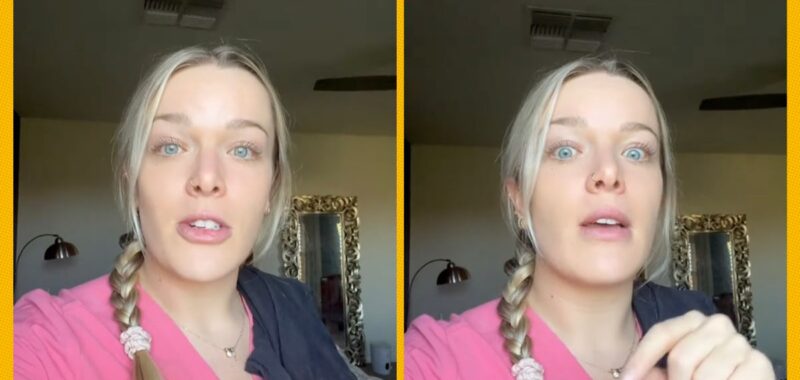People often talk about how hard it is to learn to be a parent, but fewer discuss the specific challenges of learning to be parents together with their partner. Being a parent is like training for a marathon. Being parents is like running a relay — except the baton is a very fragile tiny human. Working together as a team to keep a baby alive and happy doesn’t really come naturally. It requires a lot of communication, grace, and, frankly, trial and error. And avoiding labeling a “default parent” early takes conscious effort.
But TikTok creator and pediatrician Dr. Em (@dr.emzieees) has some truly excellent advice to make it a little bit easier.
Dr. Em opens the video by sharing words of wisdom she offers to parents at a first doctor’s appointment, and it’s something she learned as she was training to be a doctor. She acknowledges that not every child is going to be raised by two parents, and those two parents aren’t always a mom and a dad, but it is the most common set-up and it commonly falls into a familiar pattern…
“If either parent is leaving the room, they need to tell the other parent,” she says.
It’s incredibly simple. But for those among you thinking it either sounds like common sense or overkill, Dr. Em offers a great reason why it’s one of the best habits you can get into.
“When both parents are in the room, if mom needs to leave the room — if she needs to go to the bathroom, if she needs to change her clothes — she tells her partner,” she explains, before continuing. “Fathers, on the other hand, will oftentimes just get up and leave the room because they know that mom is there.
“The problem with that is that it’s making mom the default caregiver. And even if there are two parents in the room, if one parent can get up and leave at any time and not say anything, really there’s just one parent and it’s mom. It’s something a lot of men don’t realize unless you tell them. If mom doesn’t know when her duties are going to start and end she’s just always on duty for the baby.”
I can attest to the usefulness of this technique. It’s something my husband and I fell into when our kids were little and it was ridiculously helpful.
We also eventually adapted this technique for life outside of the home. We have two kids, and before going anywhere we established a “primary parent” for each of our little ones so each of us only has to “worry about” one of them. (“I’ve got Kid #1. Are you good with Kid #2?”) If we wanted to swap, we had to verbally confirm that with the other. (“Kid #2 wandered over to me and wants to ride the merry-go-round; can you take Kid #1?”)
But above and beyond the usefulness of making sure someone is watching the baby at all times (and that it doesn’t default to one of you), I truly believe this is an excellent practice in communication that can improve all aspects of your life together. It’s not always easy or intuitive, but the effort is well worth the results.

